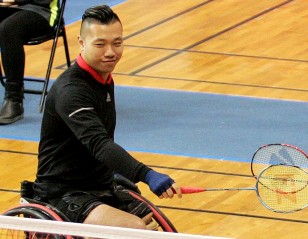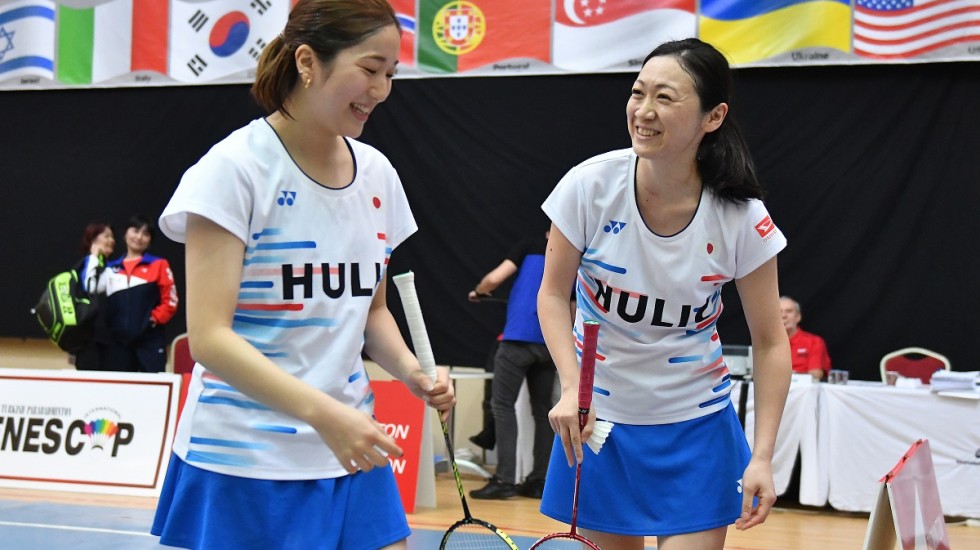
Team Japan’s Road to the Paralympics, and Beyond
The Tokyo 2020 Paralympics Games will be held from 25 August to 6 September 2020, featuring 22 sports and among them, for the very first time, will be Para badminton.
“The honour of hosting the Paralympics is made even more special for team Japan because Tokyo 2020 is the first official Paralympic games of Para badminton,” says Kazumi Hirano, President of the Japan Para Badminton Federation.
Officially the first match will take place on 2 September 2020 and in preparation for that, Japan has a team of 18 men and 12 women athletes, that are being trained by six coaches headed by Kim Jeungie.
A training centre owned by sponsors Hulic is for the exclusive use of the Para badminton team from now until the Games. This is also where training camps are held with teams from other nations. In July 2019, the Para badminton team will have access to the national badminton training centre which is currently being used by Olympic athletes only.
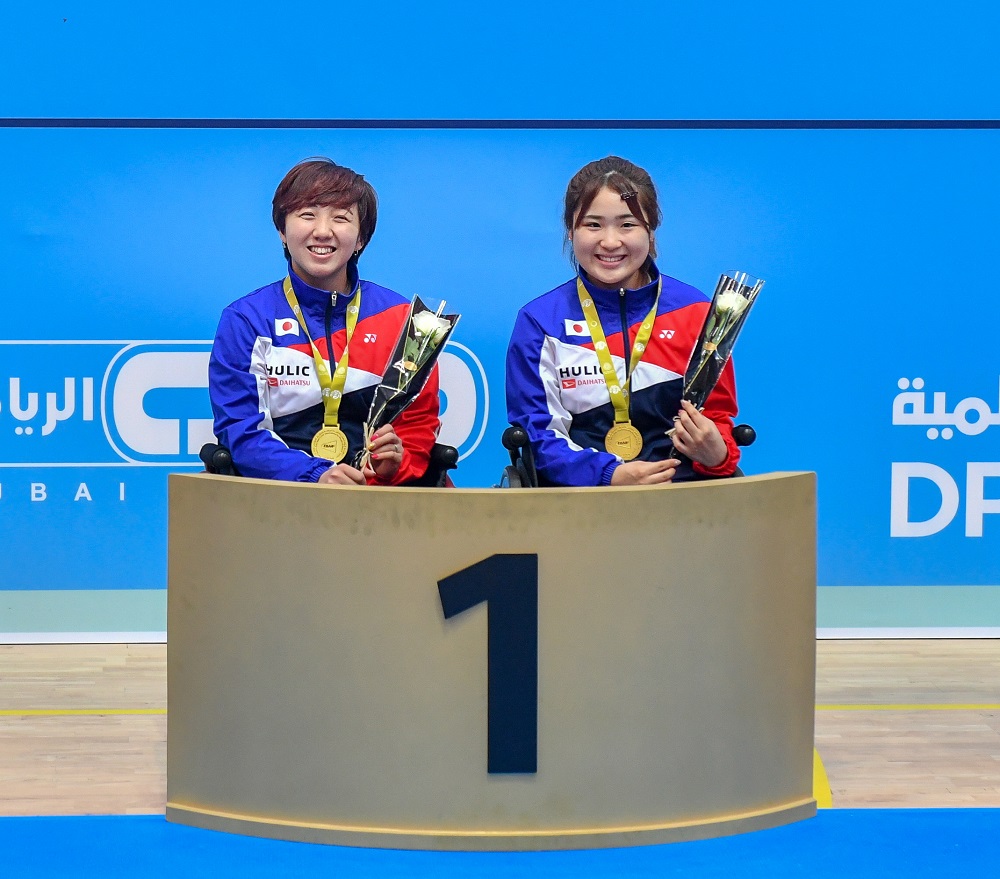
While there are no specific international training locations, joint camps are organised with other national teams in Japan and abroad. “These started three years ago. Since then we’ve had joint sessions with teams from Thailand, Indonesia, China and Korea, to name a few. We either invite players to come to Japan and join our training or we go to their countries and invite some of the local players to join us,” says Hirano.
The athletes have been entered in all 14 Para badminton tournaments from March 2019 to March 2020. Not only will the athletes be out to accumulate all-important qualification points for the Paralympics, but also get exposure in a Games-time like environment.
Tadashi Otsuka, one of the standing coaches, is more than familiar with the pressures of playing in the Olympics. “It is both psychological and physical because as an athlete you expect so much from yourself, sometimes you can’t deal with it on your own,” says Otsuka, who participated in men’s doubles and singles at the Athens 2004 Olympics, and made it to the quarterfinals of the men’s doubles in Beijing 2008.
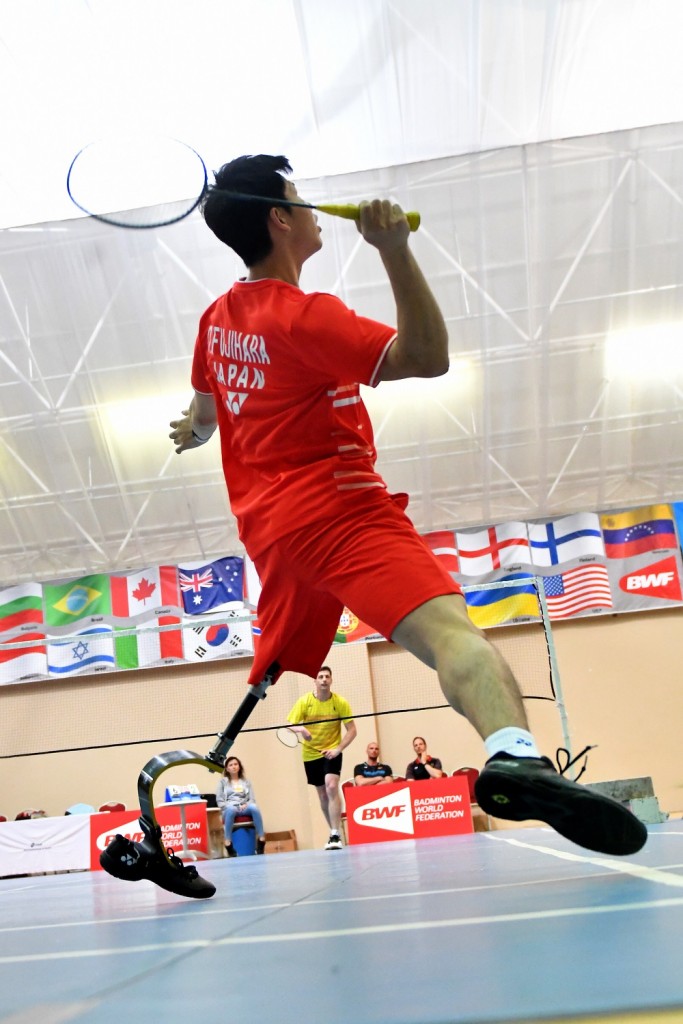
Otsuka, who only recently joined the team, advocates having fun. “I encourage them to enjoy the game and think of it as fun. Of course, we have mental training as well,” he says.
Apart from the six coaches, the athletes are supported by a psychologist, nutritionist, athletic trainer and team manager; two translators, three physiotherapists and three medical staff.
Of the 18 men in the team, the youngest, 17-year-old Daiji Kajiwara, only started playing badminton two years ago in high school. “All I want to do is qualify for the Paralympics and make my family proud,” says Kajiwara, who is in the Wheelchair (WH2) class.
The oldest team member Takahito Takeyama, 61, who plays in the Standing Lower (SL4) class, says: “Age is not an obstacle if you have the right attitude. My children and my younger teammates give me the energy and spirit I need to keep going.
“Of course, qualifying for the Paralympics will be a dream come true for me.”
With 14 medals up for grabs, and some of the toughest competition coming from all around the world, the team is focused on firstly getting to the Games.
“Each of our athletes, young or old, is undergoing the same training and our main aim now is for them to qualify for the Paralympics,” says Hirano.
While Tokyo 2020 is the target for all Para badminton athletes, Japan’s Para sports movement is already looking to the future.
Several Para sports training and recreational programmes are being carried out with the aim to encourage people with disability to take up sport, while scouting for new talent.
“This programme is for all Para sports, not just badminton. So, if we notice anyone that is talented, we will notify the respective national federations whether it is wheelchair basketball, archery or any other Para sport. Everyone is welcome, there is no age limit and it is free,” says Hirano.
With no entry or training fees, coaches are on hand to assist with training but also pick up on new talent that will then be recommended for further training and possibly national team inclusion, thereby building a pool of skilled Para athletes for the future.
Olympic and Paralympic News

Para World Champs: Golden Firsts for Marlina, Kozyna 7 November 2022

Para World Champs: Peru’s Pilar of Strength 7 November 2022

Para World Champs: Ukraine’s Kozyna Creates History 6 November 2022

Para World Champs: Indonesia Stamp Authority 6 November 2022

Para World Champs: Hellman/Wandschneider Script Magic in Tokyo 5 November 2022

Para World Champs: Poveda, Coombs Advance 5 November 2022

Para World Champs: Swiss, Japanese Ladies into Last Four 4 November 2022

Para World Champs: Age No Barrier 4 November 2022

Para World Champs: Satomi Dominant as Kajiwara/Murayama Crash Out 4 November 2022

Para World Champs: Baby Not Medals on New Mum Oktila’s Mind 3 November 2022

Para World Champs: Mazur Leads French Charge 3 November 2022

Para World Champs: Two-time Champion McVeigh Hangs up his Racket 2 November 2022

Para World Champs: Top Seeds off to Flier 2 November 2022

Para World Champs: Debutants Revel in Representing their Nations 1 November 2022

Para World Champs: Stars Return to Tokyo 31 October 2022
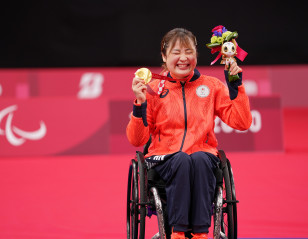
2021 in Review: History-Making Para Shuttlers 31 December 2021
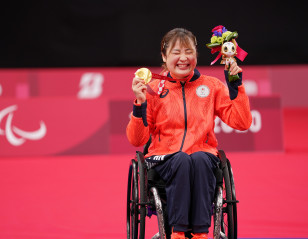
Paris 2024 Paralympic Programme Announced 20 November 2021
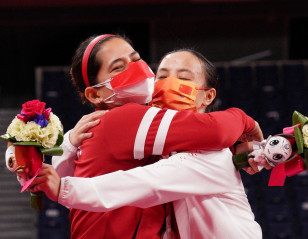
Paralympics Review – Showcasing the Extraordinary 17 September 2021
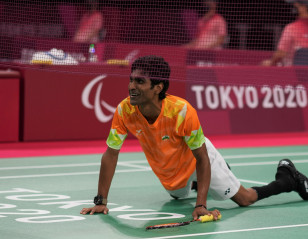
Stars of the Paralympics 16 September 2021
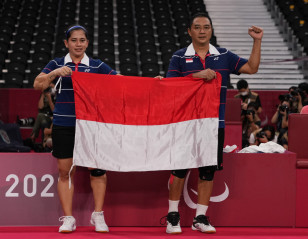
Tokyo 2020: Para Badminton in Stats 12 September 2021
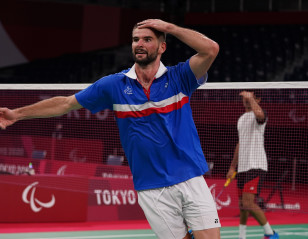
Review: Best Matches from Tokyo 2020 Paralympics 11 September 2021
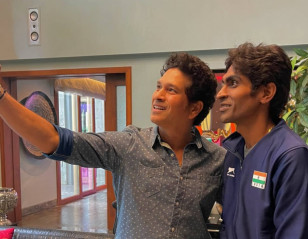
One Week, Two Dreams Come True 10 September 2021
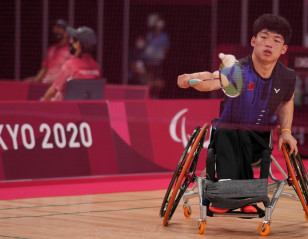
Para Badminton at Tokyo 2020 in Quotes | Part II 7 September 2021
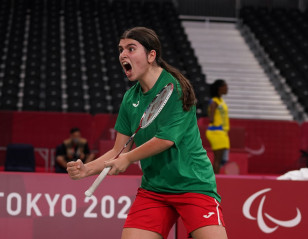
Para Badminton at Tokyo 2020 in Quotes | Part I 6 September 2021
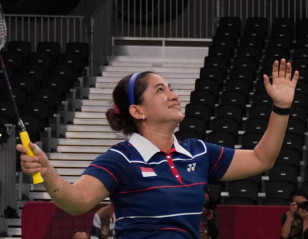
Double Delight for Satomi, Oktila, Qu Zimo 5 September 2021
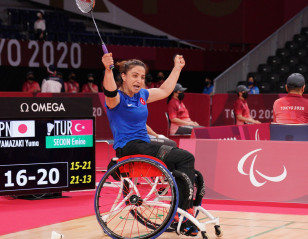
Father’s Memory Drives Seckin in Upset of Yamazaki 3 September 2021
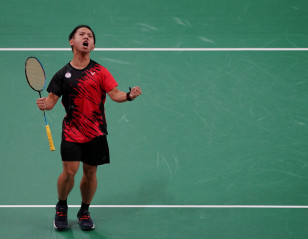
SH6 Group A on Edge 2 September 2021
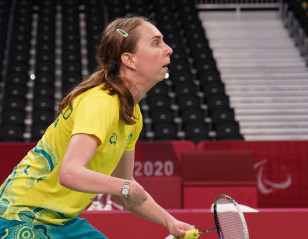
Through Sport, Study and Work, Dransfield Pushes for Change 2 September 2021
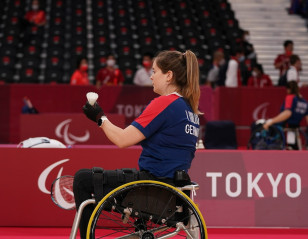
Para Badminton Enjoys Smooth Take-Off 1 September 2021
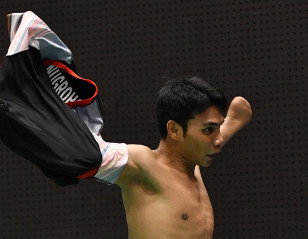
Milestones in Para Badminton’s Journey to Paralympics 1 September 2021
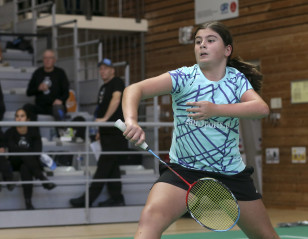
Tokyo 2020: Para Badminton In Numbers 1 September 2021
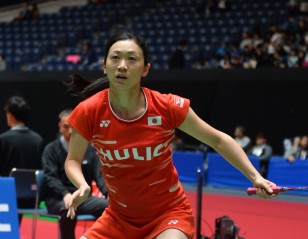
Three Shots at Gold 1 September 2021
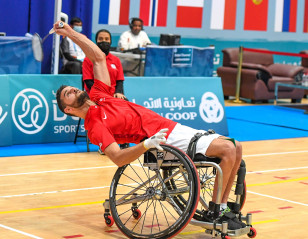
Tokyo Diary: ‘Sport Gave Me Courage’ 31 August 2021
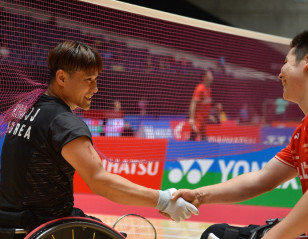
Battle of Youth Versus Experience 31 August 2021
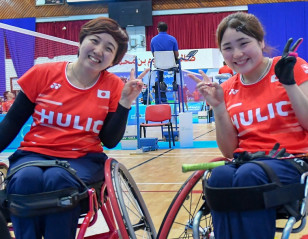
Spotlight on Satomi, Liu Yu Tong 30 August 2021
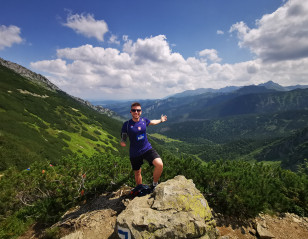
Tokyo Diary: Mroz Confident After High-Altitude Stint 30 August 2021
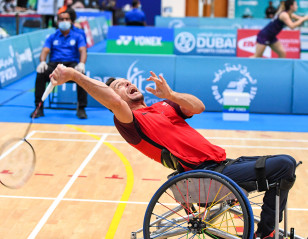
Airbus Gives Toupe a Fast Ride for Tokyo 2020 29 August 2021
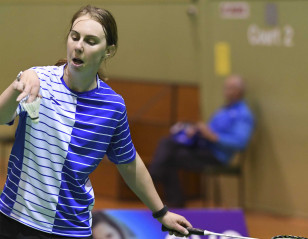
For Self, State and Nation 29 August 2021
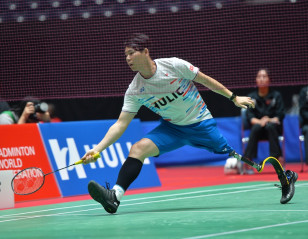
Ready to Stand and Deliver 28 August 2021
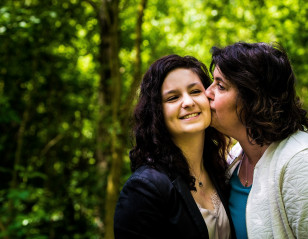
A Tattoo, A Reminder 28 August 2021
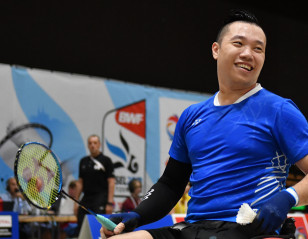
Chan’s Dream Coming True 12 Years On 28 August 2021
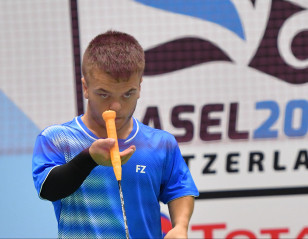
Alongside Old Friend, Shephard Primed for Medal Attack 27 August 2021
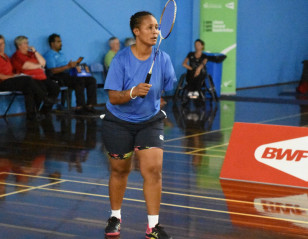
Para Shuttler Leva Targets Javelin Medal in Tokyo 27 August 2021
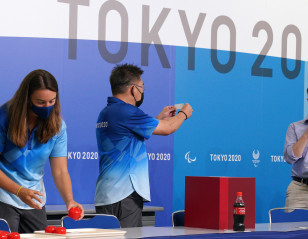
Paralympics Draw: Exciting Group Clashes in Store 26 August 2021
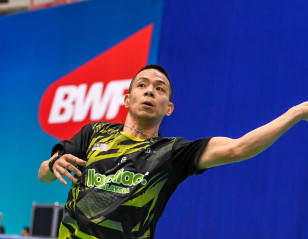
This is Cheah Liek Hou 26 August 2021
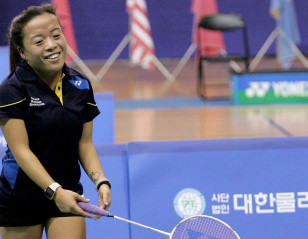
Choong ‘Losing Sleep Over Paralympic Excitement’ 25 August 2021
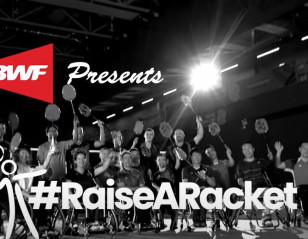
#RaiseARacket for Your Heroes These Tokyo 2020 Paralympics 24 August 2021
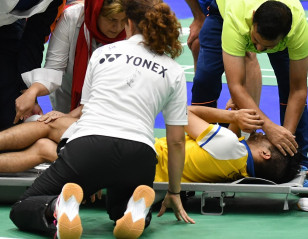
Tarun Undeterred by Injury Setbacks 23 August 2021
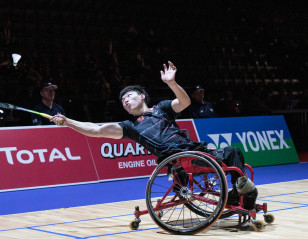
Qu: I Want to Hear My National Anthem 20 August 2021

Qualifiers for Tokyo 2020 Paralympics Confirmed 25 July 2021
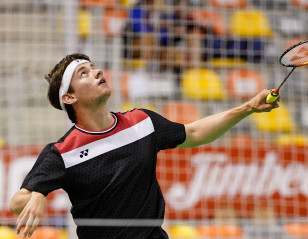
Settled Bethell All Set to Test Mettle 1 June 2021
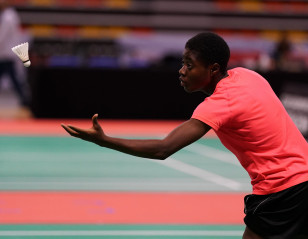
‘Bello Will Always be My Biggest Inspiration’ 29 May 2021
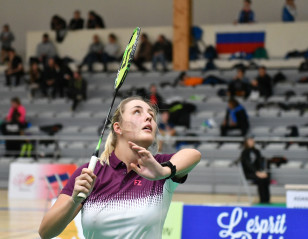
Spanish Reunion Ignites Rosengren 11 May 2021
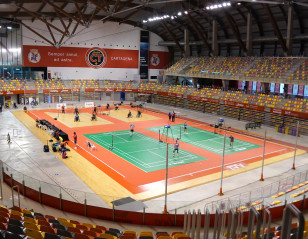
Spanish Para Badminton International: Stars Set to Sparkle 10 May 2021
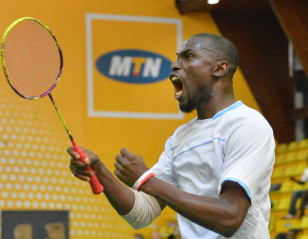
Badminton Community Mourns Passing of Bello Rafiu Oyebanji 23 April 2021
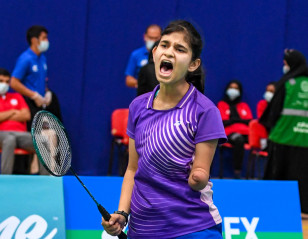
Resolute Kohli on the March Again 22 April 2021
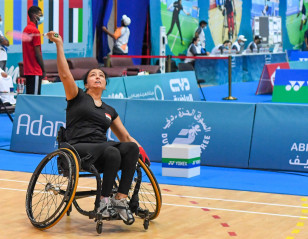
Ellatif, a Woman on a Mission 15 April 2021
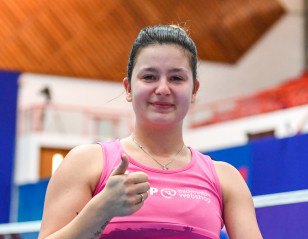
Dubai Para Badminton International: Positive Vibes All Around 11 April 2021
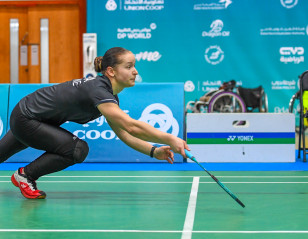
Dubai Para Badminton International: Kozyna Surprises World Champion 5 April 2021
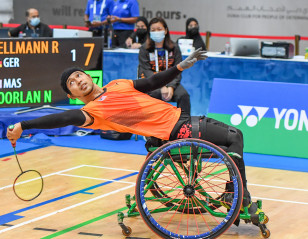
Dubai Para Badminton International: Lockdown Training Pays Off 4 April 2021
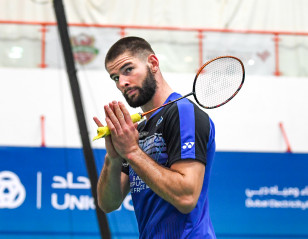
Dubai Para Badminton International: France Threatens India’s Domination 3 April 2021
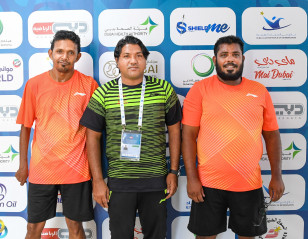
Talent From a Thousand Islands 3 April 2021
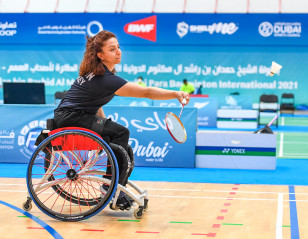
Dubai Para Badminton International: All-Points Battle 2 April 2021
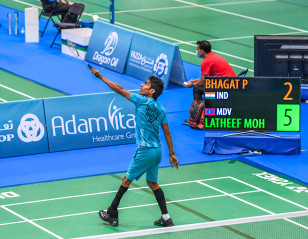
Dubai Para Badminton International: Standing Tall 1 April 2021
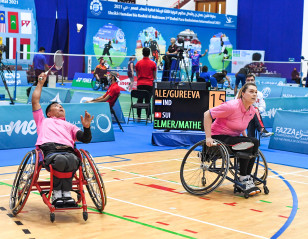
Dubai Para Badminton International: Communication Is Key in Doubles 31 March 2021
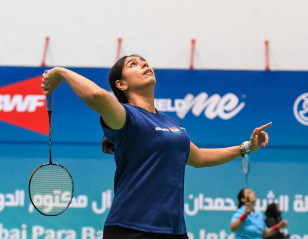
Dubai Para Badminton International: Leading Ladies Set the Tone 30 March 2021
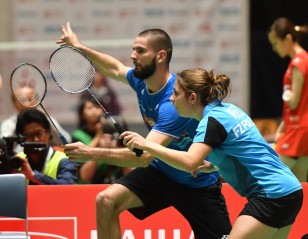
Gold is Goal for Mazur, Noel 27 March 2021
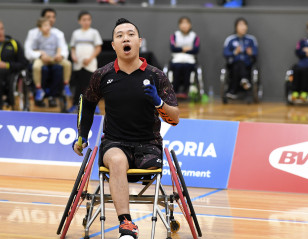
Chan: Time to Show the World What We Can Do 23 February 2021
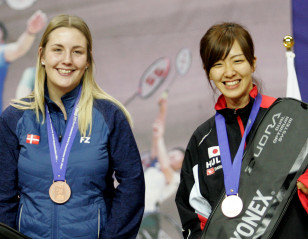
Para Badminton Community Rejoices, Fire Reignited 13 February 2021
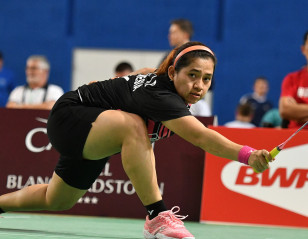
Para Badminton Tournament Calendar for 2021 2 February 2021
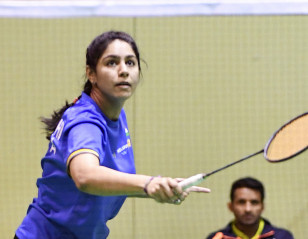
Another Feather in Joshi’s 2020 Cap 24 November 2020
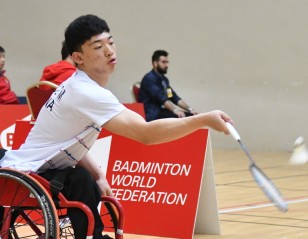
BWF Considering Options for Para Badminton Restart 29 October 2020
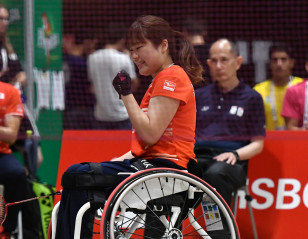
‘I’d Be Stuck at Home If Not for Para Badminton’ 24 October 2020
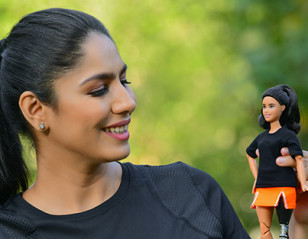
A Role Model, Time and Again 22 October 2020
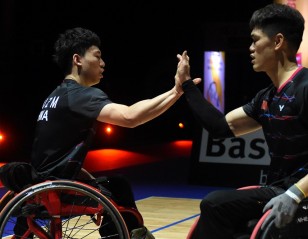
On This Day: Badminton Becomes a Paralympic Sport 7 October 2020
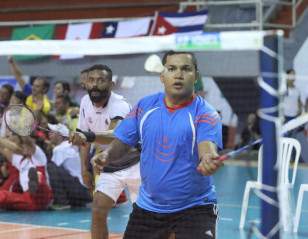
Brian Kliwon: Umpire, athlete and future doctor 6 October 2020
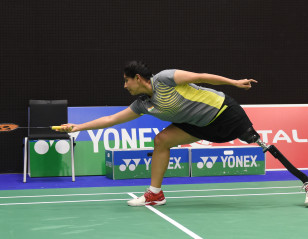
Manasi Joshi: Shining a Light on Gender and Disability 24 September 2020
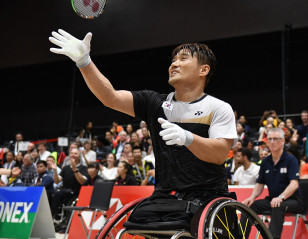
Tokyo 2020: Paralympic Stars to Watch 1 September 2020
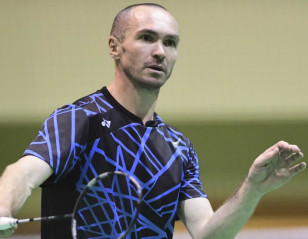
Robinson, the Kiwi Flying the World Solo 31 August 2020
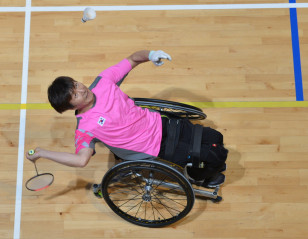
Tokyo 2020 – A Long, Extended Wait for A Dream 25 August 2020
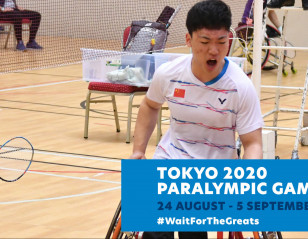
Countdown to Tokyo Paralympics Begins 24 August 2020

Para Badminton Tournaments Suspended 13 August 2020
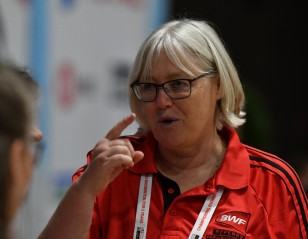
Barbara Fryer the High-Flyer Makes It a First 30 July 2020
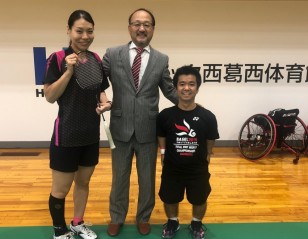
Team Japan is Back on Court 11 July 2020
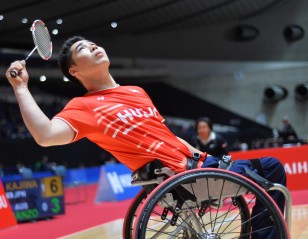
Extra Time a Blessing For Suzuki and Kajiwara 30 June 2020
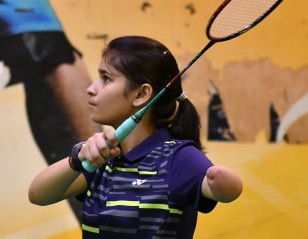
Palak Kohli Makes the Most of the Great Outdoors 25 June 2020
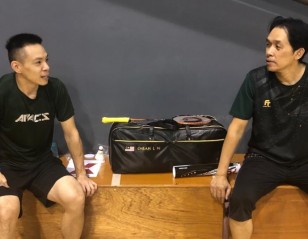
Rashid Sidek Aids Cheah’s Quest for Paralympic Glory 18 June 2020
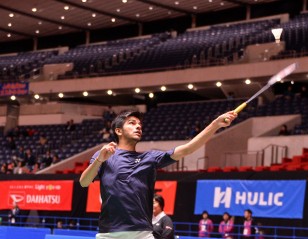
Badminton Triumphs Trump Cricket Dreams for Tarun Dhillon 2 June 2020
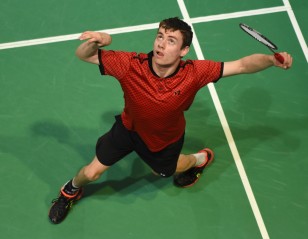
Getting to Know … Daniel Bethell 20 May 2020
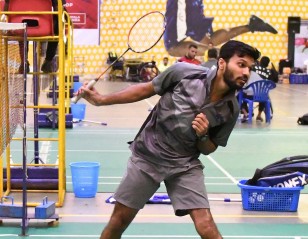
Sukant Kadam: How I Started Playing Badminton 10 May 2020
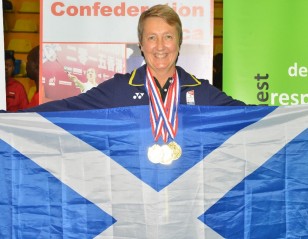
Taliban Attack Survivor Won’t Slow Down Just Yet 8 May 2020
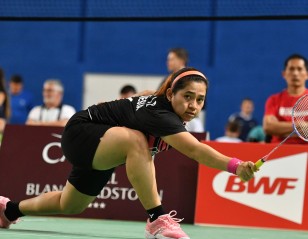
It’s All About Family and Country for Oktila 3 May 2020
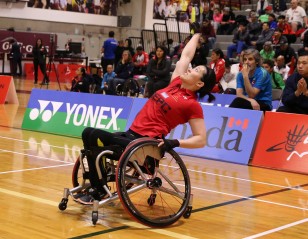
Lockdown Highs and Lows 23 April 2020
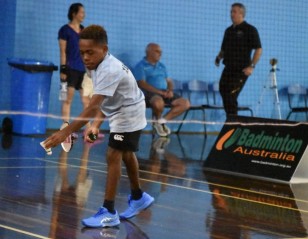
PNG Teen Ready to Fly High After ‘First Plane Trip’ 19 April 2020
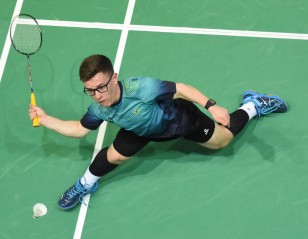
With Willpower and Great Dedication Comes Vitor Tavares 14 April 2020
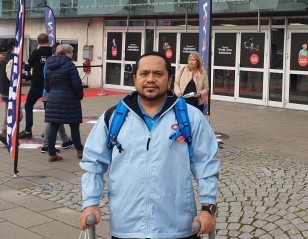
Behind the Scenes – BWF Classifier Dr Shamsul Azhar 5 April 2020
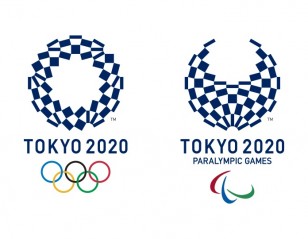
New Dates Announced for Tokyo 2020 Olympics and Paralympics 30 March 2020

Tokyo 2020 Paralympic Games Postponed 25 March 2020

Spanish Para Badminton International Cancelled 6 March 2020

Dubai Para Badminton International Postponed 5 March 2020
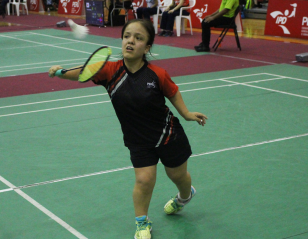
Poveda Can’t Stop Winning 24 February 2020

Venue Change for Brazil Para Badminton International 2020 9 February 2020
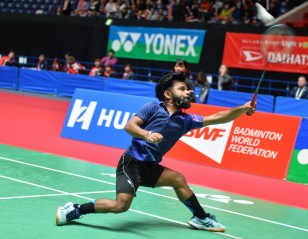
Bound for Big Things – Road to Tokyo: Krishna Nagar 8 February 2020
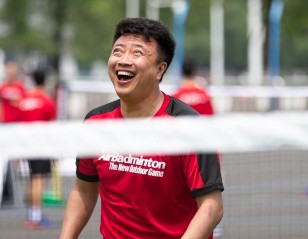
Dong Jiong: A Champion of Change (Part 4) 23 January 2020
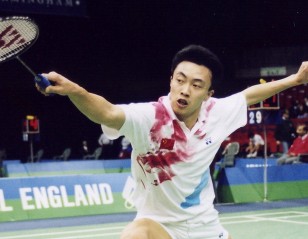
Dong Jiong: A Champion of Change (Part 3) 3 January 2020
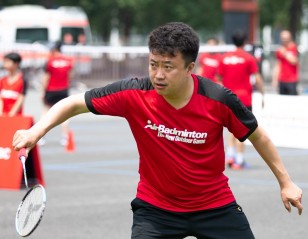
Dong Jiong: A Champion of Change (Part 2) 28 December 2019
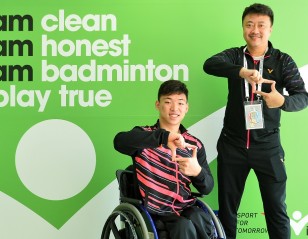
Dong Jiong: A Champion of Change (Part 1) 24 December 2019
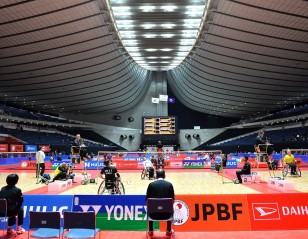
Historic Venue to Host Para Stars 27 November 2019
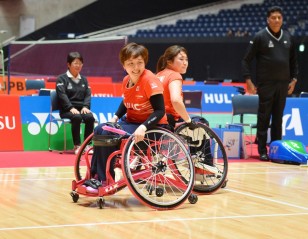
Double the Joy – Japan Para Badminton International 2019: Finals 18 November 2019
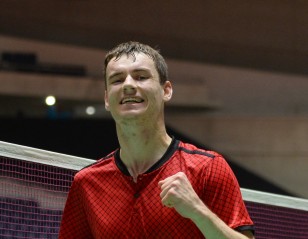
Bethell Dethrones Bhagat – Japan Para Badminton 2019: Finals 17 November 2019
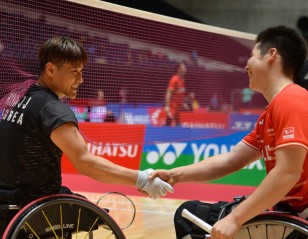
Kim Gives Kajiwara Four Years – Japan Para Badminton International 2019 16 November 2019

Stepping Up in Tokyo – Japan Para Badminton International 2019 15 November 2019

Fujihara Aims for Home Win – Japan Para Badminton International 2019 14 November 2019
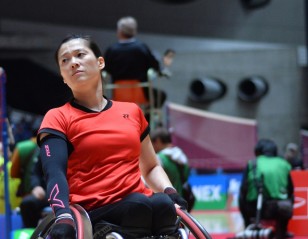
Big in Tokyo – Japan Para Badminton International: Day 1 13 November 2019

Blazing A Trail to Tokyo 2020 12 November 2019
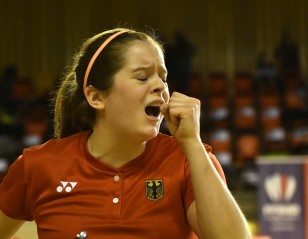
Might of Mind Over Matter – Road To Tokyo: Valeska Knoblauch 5 November 2019
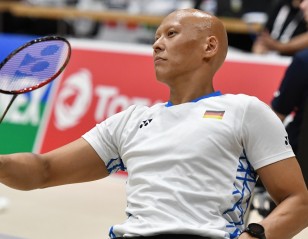
Excitement for Paralympic Games in Overdrive 1 November 2019

Record-Breaking Demand for Paralympics Tickets 21 October 2019
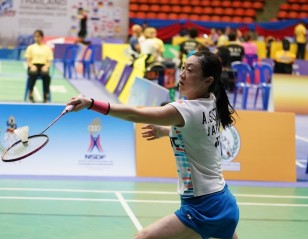
Suzuki, Mazur, Cheah Strike Twice – Thai Para-Badminton Int’l: Finals 22 September 2019
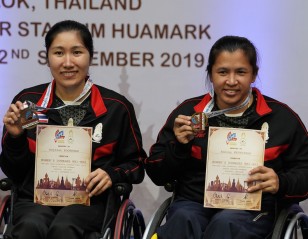
Double Gold for Wetwithan – Thai Para-Badminton Int’l: Finals 21 September 2019
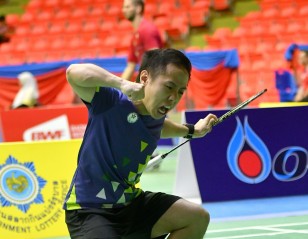
Chu Claims Champion Scalp – Thai Para-Badminton Int’l: Day 5 20 September 2019
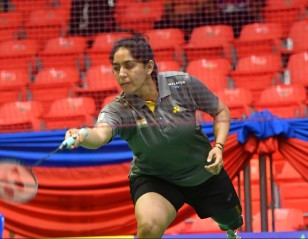
Focused on Change – Road To Tokyo: Manasi Joshi 19 September 2019
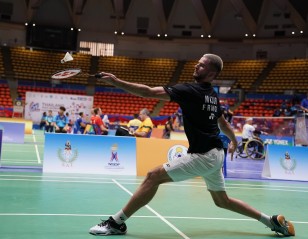
Para Stars Head to Thailand and China for Key Fortnight 17 September 2019
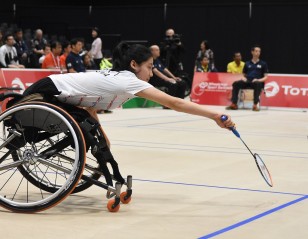
Teenage Threat on Two Wheels – Road To Tokyo: Liu Yutong 15 September 2019
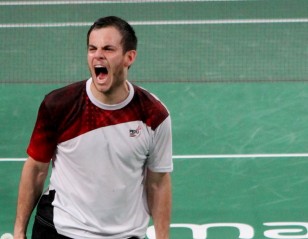
Historic Day for Peru and Guatemala – Parapan Am Games 2019 2 September 2019
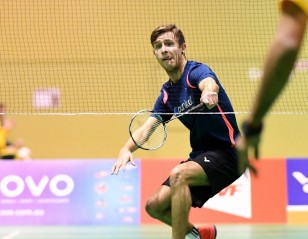
Born Fighter – Road To Tokyo: Tim Haller 6 August 2019
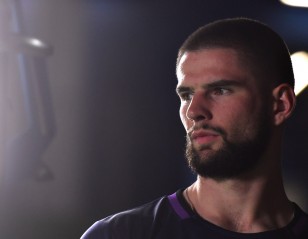
At the Height of His Career – Road To Tokyo: Lucas Mazur 16 July 2019
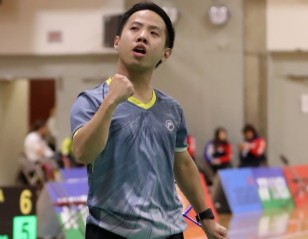
Close Battle for Top Spot 7 July 2019
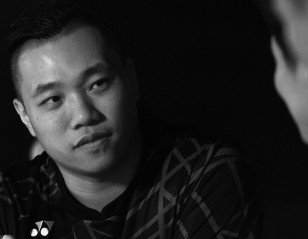
Badminton Saved My Life – Road To Tokyo: Chan Ho Yuen 5 July 2019
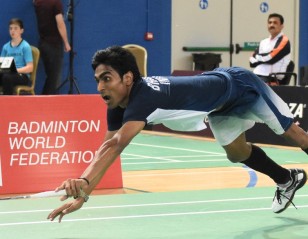
In-Form Bhagat Charges Ahead 4 July 2019
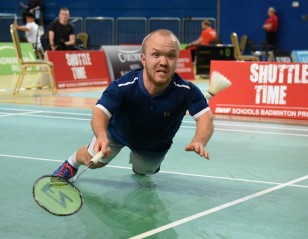
Coombs Breaks Drought – Irish Para-Badminton International 24 June 2019
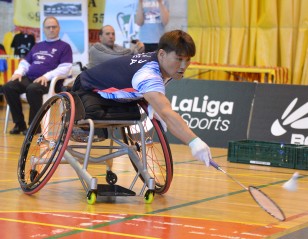
Kim Jungjun Ramps Up Training With Tokyo in Mind 12 June 2019
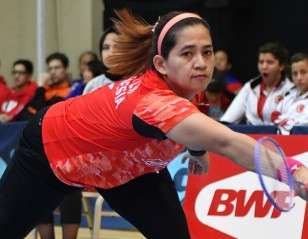
Oktila’s Sights Now On World Championships 13 May 2019
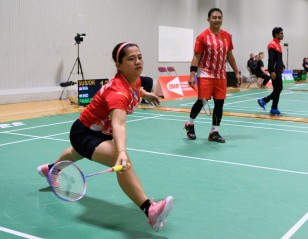
Dong Seop, Oktila Claim Treble – Canada Para-Badminton International 13 May 2019
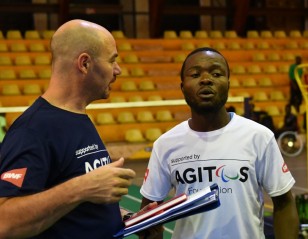
Agitos Workshop a Hit With Participants 1 May 2019
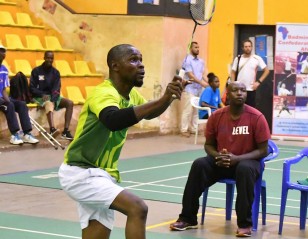
Bello Determined to Make History 1 May 2019
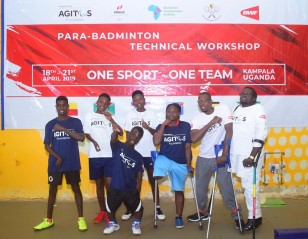
Sky’s the Limit for Para Badminton in Uganda 22 April 2019
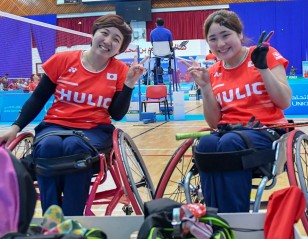
Super Mum – Road To Tokyo: Yuma Yamazaki 10 April 2019
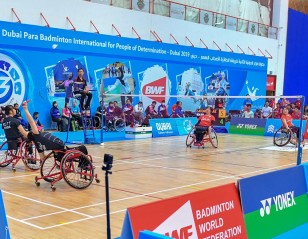
Athlete Wellbeing and Tokyo 2020 Top Priority for Commission 9 April 2019
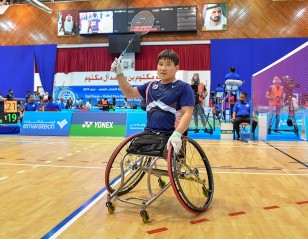
Asia Shares Out Wins – Dubai Para-Badminton Int’l 8 April 2019
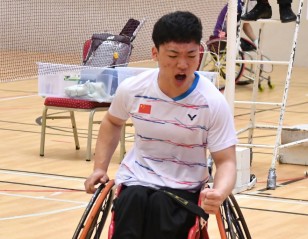
Qu Zimo Wins Triple Crown – ENESCUP 2019 1 April 2019
